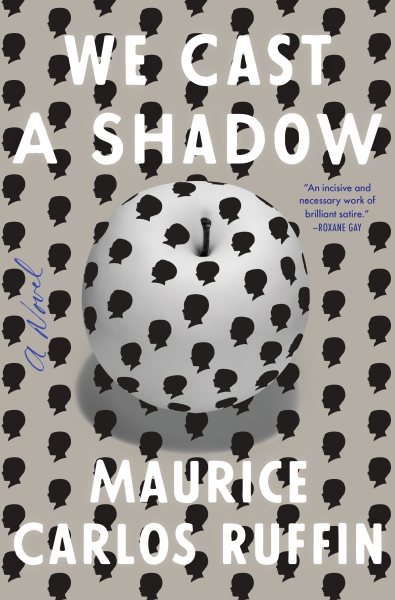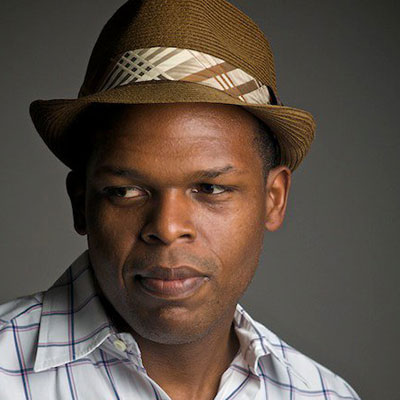Interview by Jana Hoops. Special to the Clarion-Ledger (February 17). Click here to read this interview on the Clarion-Ledger’s website
 New Orleans native Maurice Carlos Ruffin’s debut novel is a darkly thought-provoking satire on race in America that is based on one African-American man’s plan to spare his teenage son from racial disparities he and his own father have endured–thanks to a new medical procedure that can change his biracial son’s skin white.
New Orleans native Maurice Carlos Ruffin’s debut novel is a darkly thought-provoking satire on race in America that is based on one African-American man’s plan to spare his teenage son from racial disparities he and his own father have endured–thanks to a new medical procedure that can change his biracial son’s skin white.
We Cast a Shadow has been called “a surrealistic satire about identity, race, and family relations” with a plot that, though many will find outrageous, will make readers pause and think.
An award-winning writer, Ruffin has earned an Iowa Review Award in fiction and the William Faulkner-William Wisdom Creative Writing Competition for Novel-in-Progress. His work has been published in Virginia Quarterly Review, The Kenyon Review, the Massachusetts Review, and others.
He is a graduate of the University of New Orleans Creative Writing Workshop and is a member of the Peauxdunque Writers Alliance.
In We Cast a Shadow, a well-intentioned and unnamed father of the future–a hardworking, goal-oriented black attorney–works to secure enough wealth to have his son Nigel undergo a “demelanization” procedure to change the teenager’s skin to white, thereby promising his child a brighter future. How did you develop this story idea, and why?

Maurice Carlos Ruffin
I thought about all the ways we’ve tried to push against racism in our history as a nation. We’ve protested, fought the Civil War, passed laws, and, yet, we still deal with the problem today.
The narrator wants to protect his son, and he wants to do it in a way that is foolproof and effective. He reckons that no one will bother his son if he’s white! Of course, we see celebrities alter themselves all the time to gain notoriety: skin tanning, liposuction, rhinoplasty, etc. I was thinking about what would happen once we can change virtually any part of our bodies. It’s not so far-fetched now that we can genetically modify babies in the womb!
It’s clear throughout the story that Nigel and his mother are against the idea of having the procedure done, but the father is adamant. In the end, three lives are changed forever–each of their destinies a thought-provoking surprise. What lessons can readers learn from this anonymous dad’s sobering tale?
One lesson is that racism affects us all. It doesn’t matter your race, gender, or age. None of us are really safe until all of us are. Another lesson is that none of us should be too arrogant about our beliefs. Both parents are sure their approach is right. But what if both are right and wrong at the same time? A bit of humility might go a long way to ultimately ending racism and the damage we do to ourselves and our families.
The word “shadow” is used frequently in the book, as a noun, verb or adjective. Tell me about the title of the book. Was it based on the novelist E.M. Forster’s quote from A Room with a View? “We cast a shadow on something wherever we stand, and it is no good moving from place to place . . . because the shadow always follows. Choose a place where you won’t do harm . . . and stand in it for all you are worth, facing the sunshine.”
I wasn’t consciously aware of the Forster quote! I was thinking of Kanye West’s song “All of the Lights.” In the video for the song we see that he’s trying to protect his daughter from the dangers of their rough neighborhood. With my narrator, he wants his son to have every possible opportunity that any American child should have. He wants him to see “all of the lights.” I flipped that idea on its head to create the title. They are caught in the shadows.
A character in the book told the narrator that race was “just an idea,” and said, “We’ve got to ignore race to transcend it.” Can you explain what this means, and do you agree?
It’s an old idea. People often say they don’t see race, as if that’s a good thing. However, if you don’t see race, then you’ll never understand how policies related to housing, policing, health, education, economics, etc. more negatively affect black people and other people of color.
Racism is a sickness. Imagine how terrible it would be if your daughter had diabetes and you said, “I don’t see diabetes!” That child would not do well with you serving her waffles with syrup each morning. If there is a solution to America’s racism problem, it lies in turning off the systems that automatically disenfranchise people every day. But you can’t turn off the systems if you refuse to see them.
Do you see another novel in your future soon?
Absolutely. I’m writing it now. But don’t ask me what it’s about because I don’t know. I tend to throw everything into the pot until it smells right. So, I’ll keep working on it until it’s a dish I’d serve to people I care about.
I always rely on faith that the writing will work out. It usually does. It did with this novel!
Signed first edition copies copies of We Cast a Shadow by Maurice Carlos Ruffin are available at Lemuria’s online store.


Comments are closed.